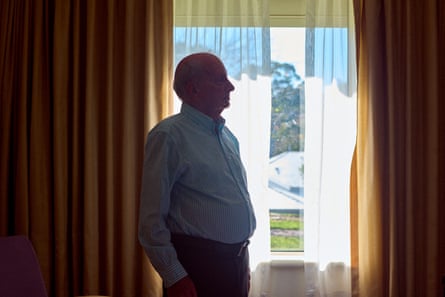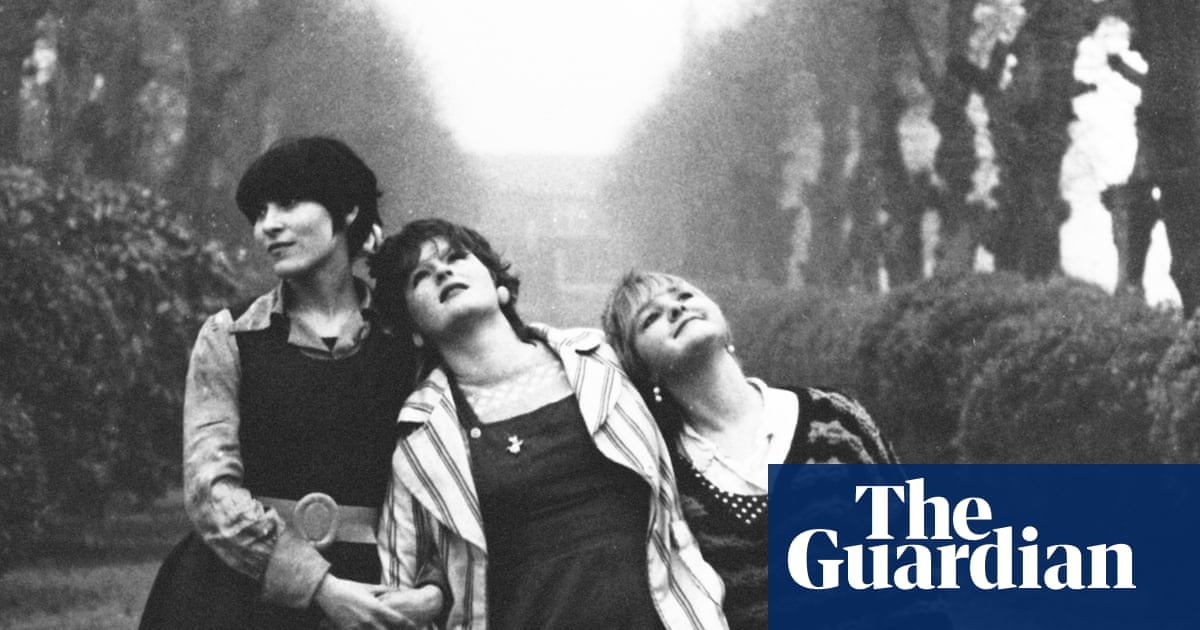The 18th-century English writer Samuel Johnson once wrote, ‘He is not only dull himself; he is the cause of dullness in others’. It’s a sentiment eagerly embraced by The Dull Men’s Club. Several million members in a number of connected Facebook groups strive to cause dullness in others on a daily basis. In this club, they wear their dullness with pride. The duller the better. This is where the nerds of the world unite.
“Posts that contain bitmoji-avatar-things are far too exciting, and will probably get deleted,” warn the rules of the Dull Men’s Club (Australian branch).
Maintaining standards of dullness is paramount. Alan Goodwin in the UK recently worried that seeing a lesser spotted woodpecker in his garden might be “a bit too exciting” for the group. In the same week, a flight tracker struggled to keep his excitement to an acceptable level when military jets suddenly appeared on his screen.

This is the place for quirky hobbies, obscure interests, the examination of small, ordinary things. It is a place to celebrate the mundane, the quotidian. It is a gentle antidote to pouting influencers and the often toxic internet; a bastion of civility; a polite clarion call to reclaim the ordinary. Above all, it is whimsical, deeply ironic self-effacing and sarcastic humour.
There is an art to being both dull and droll. “It’s tongue-in-cheek humour” says founder Grover Click (a pseudonym chosen for its dullness), “a safe place to comment on daily things.” Exclamation marks, he says, “are far too exciting.” (On his site, ridicule is against the rules, as is politics, religion, and swearing).
There is, says Bt Humble, a moderator for the Australian branch, “a level of one upmanship. It’s sort of competitive dullness.” Dull people trying to out-dull each other.

Are there people who are just too exciting for the club? “There isn’t actually a mandatory level of dullness,” he admits, although some of the members he has met “would bore the ears off you.”
It all started in New York in the early 1980s. Click, now 85, and his friends were sitting at the long bar of the New York Athletic club reading magazine articles about boxing, fencing, judo and wrestling. “One of my mates said ‘Dude, we don’t do any of those things.’” They had to face it. They were dull. They decided to embrace their dullness.
As a joke, they started The Dull Men’s Club, which involved some very silly dull activities. They chartered a tour bus but didn’t go anywhere. “We toured the bus. We walked around the outside of the bus a few times. And the driver explained the tyre pressures and turned on the windscreen wipers.”
In 1996, when Click moved to the UK, his nephew offered to build a website for “that silly Dull Men’s Club.”
Today, Click’s copyrighted Dull Men’s Club Facebook group has 1.9 million members. There is an annual calendar featuring people with peculiar hobbies, a book – Dull Men of Great Britain – merchandise and not one but two awards: Anorak of the Year in the UK and DMC Person of the Year for the rest of the world. There are also numerous copycat Dull Men’s Clubs, including one that has 1.7 million members. Click is “very surprised” that so many people identify as dull. The Australian club has 8,000 members. Comparatively small but definitely holding its own in the dullness department.

Much of the minutiae of life gets on members’ nerves, as does poor workmanship. Five hundred amused comments followed a post about coat hangers inserted into hoops on rails in hotel rooms. “That would keep me up all night,” said one person.
The over or under toilet paper debate raged (politely) for two and a half weeks. Then there was the dismantling of electronic appliances. Or photographing post boxes, the ranking of every animated movie from one to 100 – 100 being “dull and pointless”. Members judge the speed of other people’s windscreen wipers against their own, or in the case of Australia’s Simon Molina, stuff as many used toilet rolls as possible inside another. “It’s extremely dull.” There was the late John Richards who founded the Apostrophe Protection Society and 94-year-old Lee Maxwell who has fully restored 1,400 antique washing machines – that no one will ever use.
Australian member Andrew McKean, 85, had dullness thrust upon him. He is, dare I say it, an interesting anomaly in the Dull Men’s Club, a shift in tone. Three years ago, he had a heart attack. He recovered but the hospital’s social workers deemed him unable to care for his wife, Patricia, and they moved to a nursing home in NSW. There is nothing droll or amusing about being stuck in a nursing home. But he has elevated the dull institutional days into something poetic and poignant by writing about them and posting “to you strangers” in The Dull Men’s Club.
after newsletter promotion

His life before moving into a home had been anything but dull. An electronics engineer, in 1967 he was connected to the Apollo moon mission. Then a career in the television broadcasting industry took him to the UK, Malta, West Africa and Canada.
Once a traveler who lived in a sprawling house at Pittwater who spent his days in the sea, now his life is reduced to a single room, “every trace of my existence is contained within these walls.” Sitting in his worn, frayed armchair by the window “watching the light shift across the garden,” he writes about ageing and “the slow unfolding of a life.”
He is surrounded by the “faint hum of machines and the shuffle of slippers … the squeak of a wheelchair, the smell of disinfectant.”
With the club, McKean has found his people, his tribe, within this ironic, self-deprecating community. At 85 he has found fans. Even if they are proudly dull.
He lives for the bus and a few hours of freedom in a life that has shrunk. On the bus “something stirs in us, a flicker of youth perhaps.” He treats himself to KFC, “the sharp tang of it a small rebellion against the home’s bland meals.”

He sits on a park bench, an old man with a stick, invisible and inconspicuous to the people rushing past “watching the world’s parade, its wealth and hurry.” He observes it all and reports back to the Dull Men’s Club. “Though the world may not stop for me, I will not stop for it. I am here, still breathing, still remembering. And that in itself, is something.”
While he usually posts daily, other dull people get concerned if he doesn’t post for a while. They miss him, his wisdom and his beautiful writing.
In his introduction to the 2024 Dull Men’s Club calendar Click wrote, “What they [the dull men] are doing is referred to in Japan as ikigai. It gives a sense of purpose, a motivating force. A reason to jump out of bed in the morning.”
Here is a radical thought. Dull men (and women) are actually interesting. Just don’t tell them that.

 3 months ago
380
3 months ago
380

















































